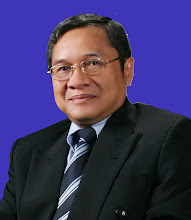Acknowledgements
This book was undertaken to provide information and analyses of developments in intergovernmental fiscal relations in Indonesia. The book provides an overview of the existing state of intergovernmental fiscal relations in Indonesia and suggests appropriate directions for future outlook. It is also reflecting an evolving most of my career mainly as government’s official at the Ministry of Finance before my retirement as the Director General of Taxes, Director General of Central and Regional Financial Balance, as well as lastly as the Director General of State Claims and Auctions. Many people range from international agencies mainly the World Bank and Asian Development Bank officials, government officials both central and regional governments, member of Parliaments, member of Regional Representative Councils, Governors, Head of Districts, Mayors, practitioners as well as academic environments those are giving me significant benefits in enriching my knowledge’s and understanding how complex are the issues related to intergovernmental fiscal relations especially in the developing countries such as Indonesia. Owing to lack of comparable statistical data, the study of this book does not have comprehensive quantitative analytical compilation among countries in this area which such data were available when the book was completed. Moreover, the book covers the most turbulent years of Indonesia’s fiscal decentralization process; a period that posed an exceptionally strong challenge to intergovernmental fiscal relations in Indonesia when the country has embarked upon a radical and rapid decentralization program popularly known as “Big Bang Decentralization of 2001”. Promptly after the effectiveness of Laws No. 22 and 25 of 1999 on Regional Government and Financial Balance between Central Government and Regions respectively, within one year, the government decentralized much of the responsibility for public services to regional governments, almost doubled the regional share in government’s spending, shifting two-third of the central government civil services to regions, hand over more than 16,000 service facilities to the regions, as well as parallel activities have been in progress in preparing institutional development and capacity buildings. Many institutions worried about the implementation of the policies; however it went remarkable smooth with relatively problems which mostly can be tackled.
This book seeks to draw out the lessons from Indonesia’s experience in the process of transforming the paradigm from centralize authority to a more democratic and decentralized systems, especially in the recent years. Decentralization process in Indonesia is far from completed and ideal, thus the country should maintain the direction of the process in line with the ultimate objectives of decentralization which support the nation’s efforts in achieving welfare for all citizens in the environment of liberty, democratic and strengthening local community participation in nation building processes.
A great many people provided me with vital help in this field and thereafter. It is impossible to mention them all, but it is essential to identify some. I should thank to Prof Bambang Sudibyo, the late Mr Prijadi Praptosuhardjo, Dr Rizal Ramli, Prof Boediono, Dr Jusuf Anwar and Dr Sri Mulyani Indrawati, those are my former leaders as the Minister of Finance in their periods. Prof Bambang Sudibyo and his team such as Dr Robert Simanjuntak, Dr Raksaka Mahi, Prof Bambang P.S. Brojonegoro, Prof. Arifin P. Suriatmadja, Prof Dahlan Thaib, Prof Sutyasti Sumitro, Prof Zulkifli Husin, Prof Syafrizal and Mr Sayuti Asyathri were my partners in advising the former Minister of Finance Prof Boediono before he made many decisions in the area of intergovernmental fiscal relations. I owe special thanks to them, that I became confident to convince all decision makers at the government and Parliament in the process of drafting Law on Financial Balance between Central and Regions which I was appointed as Chairman represented Government to proceed the bill with the Working Team set up by Government and Parliament in discussing the bill. Yet, ultimately after following hectic debates, the bill was approved and became the Law No. 33 of 2004 on Financial Balance between Central and Regions.
Of course, my special thanks’ should go to Minister Sri Mulyani Indrawati and Dr Jusuf Anwar who still entrust me in supporting Ministry of Finance dealing with the process of State Budget appropriation for the allocation of Balancing Fund to regions, although my main tasks was no longer related with the matters.
I wish to thank Prof Roy Bahl and Prof Jorge Martinez-Vazquez, both of Georgia State University, and Dr Bert Hofman of the World Bank, all of them gave me philosophical view and insight of fiscal decentralization during my interactions with them as advisors and official of the World Bank. Prof Bahl especially, influenced many of my views in expressing my ideas in this field.
I also wish to thank Prof Mardiasmo, Dr Kajatmiko, and Mrs Rengganis Wicaksono for many helpful conversation and comments on earlier draft of sections and the title of this book. I should thanks to Mr. Acep Dedy S, who supported me many quantitative data and taught me some advanced computer proficiency in writing, tabulating and processing data which mostly depicted in the appendices of this book. They, however, can bear no responsibility for the finished product; of that, and any errors of omission, I alone am responsible of that fault. Yet, this book could not have been written without the generous support of many people I mentioned.
I also must express my deep gratitude to my friends who have offered support and encouragement when needed, those are Dr Chaizi Nasucha, Dr Cip Ismail, Dr Hasan Rachmany, Mr. Tengku Rusydi, Mr. Eddy Slamet, Mr Bambang Haryanto and Mr Bani Subarkah.
Finally, I wish to thank my wife, Siti Komariyanah, my daughter Dahlia Erlani, my sons Yan Ari Nugroho and M. Kemal Basya and all my families, especially my grandson Muhammad Farrel Dafikia who encouraged me to write this book and brought me relaxes and smiles, when they looked at me tired in the process of drafting this book.
Jakarta, March, 2007
Machfud Sidik

Tidak ada komentar:
Posting Komentar